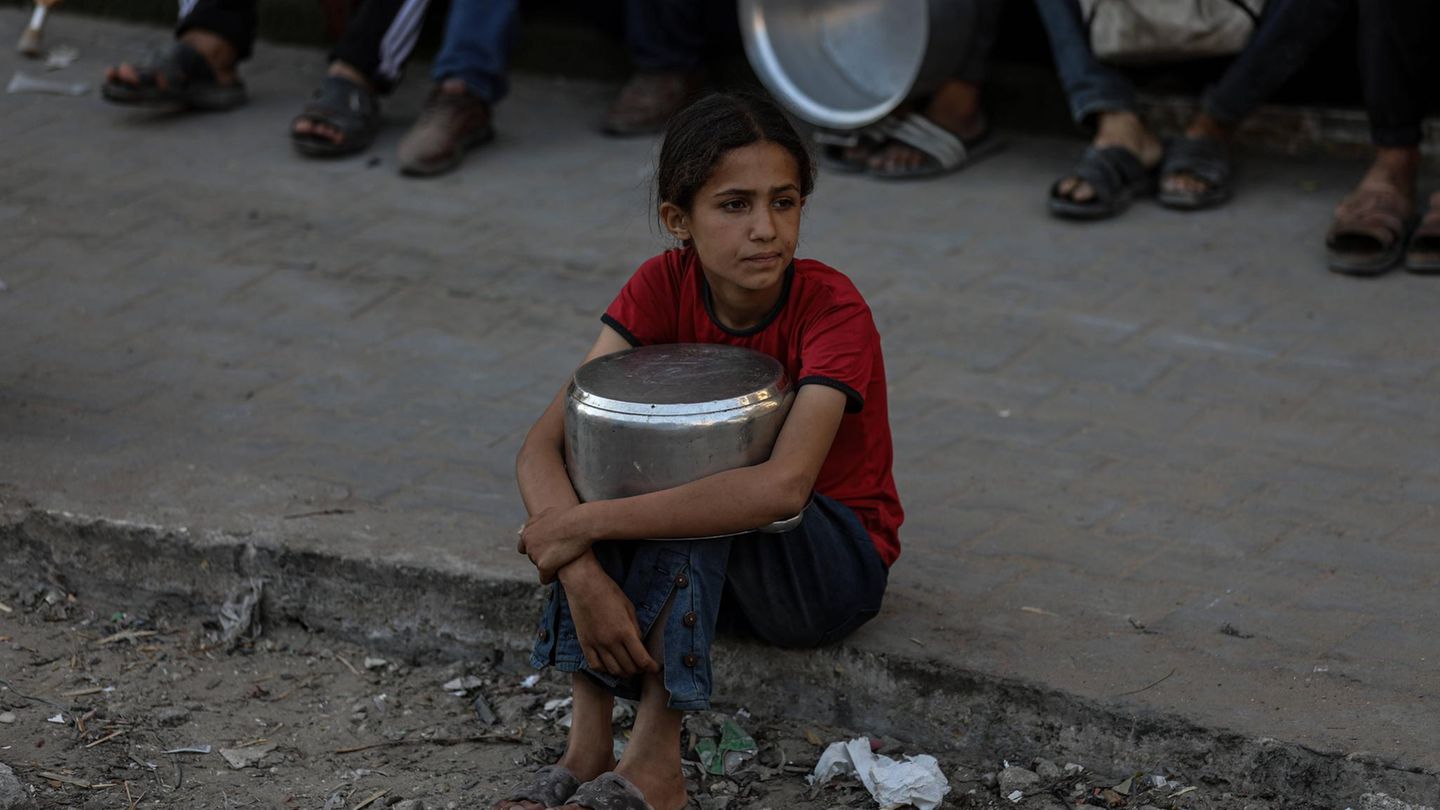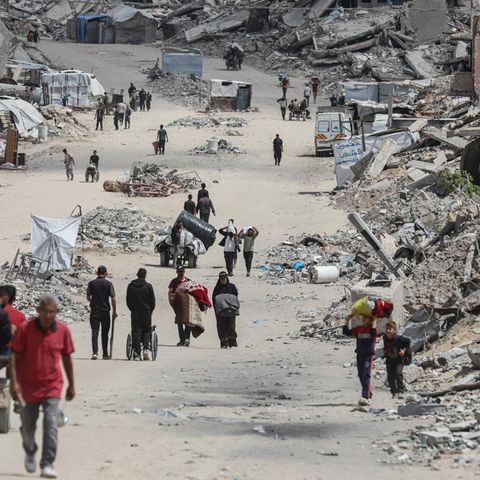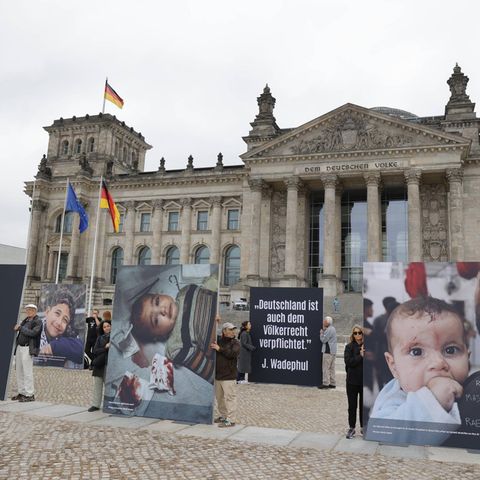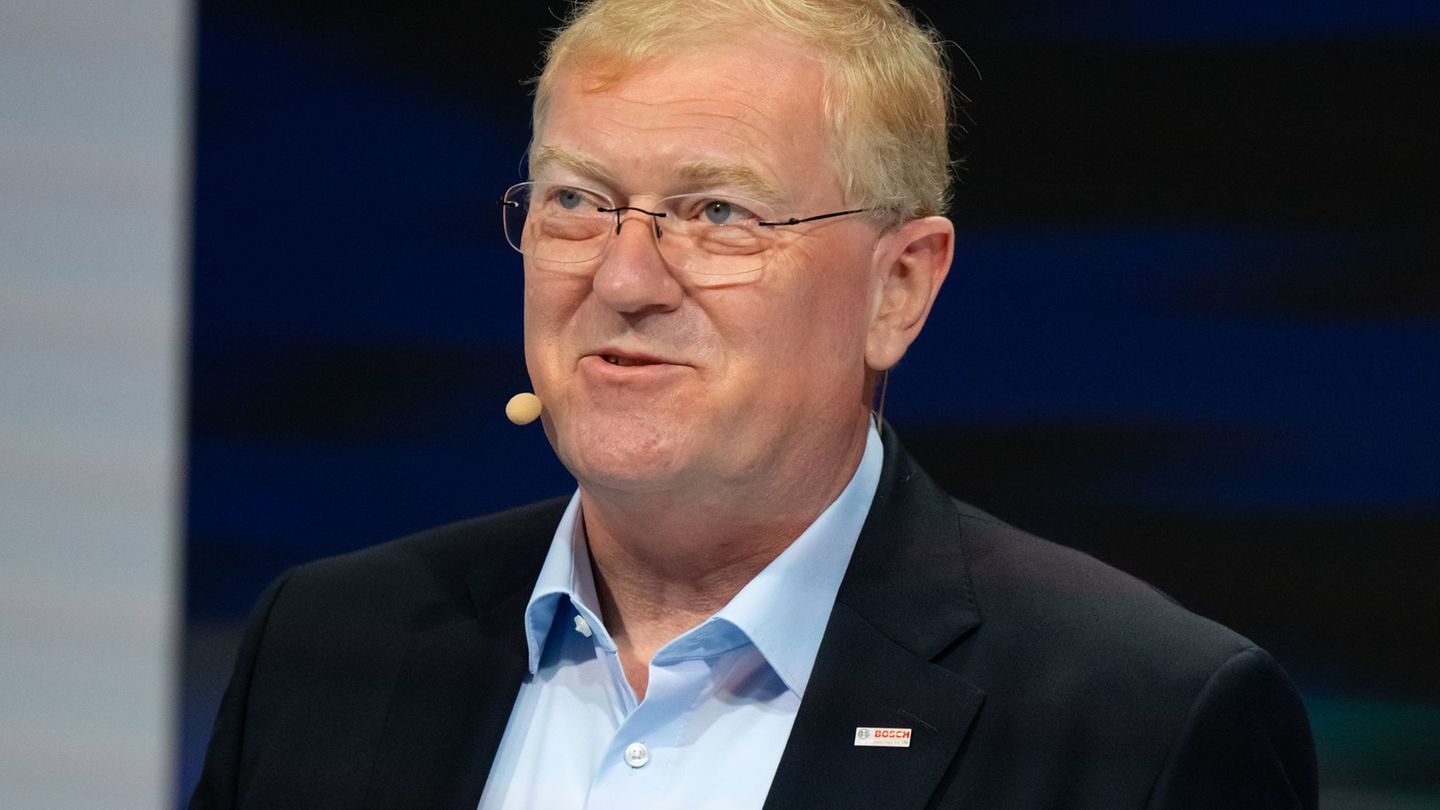famine
Gaza starved
Copy the current link
Add to the memorial list
In partly drastic words, international aid organizations accuse Israel of causing a massive famine in Gaza. Netanyahu’s government is unimpressed.
Her arms are thin, her eyes tired, her clothes dirty – and the pot that many children carry with them in Gaza for food and empty.
The location of the people in the Gaza Strip is desperate. Hardly any food and other relief supplies have been in the coastal strips sealed off by Israel for months. Even the sea, whose fish stocks were a lifeline for the Palestinian population, was declared a combat area by Israel. In an urgent appeal, more than 100 aid organizations have now warned about a famine.
In the explanation published on Wednesday and signed by 111 organizations, it was said that “our colleagues and the people we help”. According to the appeals of the appeal, aid deliveries in the Gaza Strip are currently only 28 trucks a day. According to the UN, at least 600 trucks per day are required to feed the population of two million people. Many supplies from the aid organizations are almost used up. Foods that are still available are hardly affordable for people. And many rescue workers are now too weak to help the collapsing person.
A quarter of the Palestinians suffer acutely from hunger
Dr. Rik Peeperkorn, who regularly visits Gaza for the World Health Organization WHO, said the BBC that he recently seen children who sway significantly younger due to malnutrition than they were actually. According to the WHO, more than 50 children have died of malnutrition since the beginning of the Total blockade in March. The Ministry of Health in Gaza led by Hamas reported on Tuesday that 33 people died of malnutrition within 48 hours. According to the World Food Program (WFP), a quarter of the population now lives “under hunger -like conditions”.
Hundreds of tons of food are available at the limits. The United Nations repeatedly pointed out difficulties in obtaining the necessary Israeli approval in order to pick up the incoming relief goods with the drivers from the Gaza Strip at the border crossings and to transport them through the military zones. The persistent Israeli air strikes, the heavily damaged streets and the serious lack of fuel have tightened the problems.
People seeking help are shot
According to the UN, the greatest difficulty is to obtain promises from the IDF that desperate Palestinians are not killed while looking for life-saving help. Every time auxiliary teams tried to pick up goods at the border crossings, according to the UN employees, civilians approached their trucks, which were under Israeli fire.
The UN had announced on Tuesday that Israeli soldiers had killed more than a thousand Palestinians since the work of the aid organization Gaza Humanitrian Foundation (GHF) controlled by Israel and highly controversial aid organization Gaza Humanitrian Foundation (GHF). The head of the UN aid for the Palestinians (Unrwa), Phillipe Lazarrini, described the GHF distribution centers as “sadistic death traps”. What happens there was a “massive human hunt, with complete impunity,” he wrote on X.
No one is saved: caretakers in #Gaza So in Need of Care.
Doctors, Nurses, Journalists & Humanitrian’s are hungry.
Many are now fainting due to hunger & exHAUSION While performing their duties: Reporting atrocities or alleviating some of the Suffering.
Meanwhile, …
– Philippe Lazzarini (@unlazzarini) July 21, 2025
At this point, our editorial team has integrated content from Twitter / X.
Due to their data protection settings, this content was not invited to protect their privacy.
28 countries criticize Israel
Meanwhile, international pressure on Israel is growing. Already on Tuesday, 28 countries called for an immediate end of the war in the Gaza Strip on Tuesday and at the same time criticized Israel’s handling of the humanitarian aid for the sealed -out area. “Further bloodshed does not serve any purpose,” says the text. The hostages continued in Gaza would also have to be released immediately.
Does Israel finally get to the sidelines with his approach internationally? Or is the explanation just symbol politics?
Jan Busse, expert in the relationships between Europe and the Middle East at the University of the Bundeswehr in Munich, considers the explanation to be a clear signal, “above all because there are numerous states that were previously close partners of Israel, above all Great Britain”. In particular, the attitude of the United States, which has not signed, is crucial – but the EU can also affect Israel if it wanted to act, for example through the association agreement. It grants Israel in many areas the privileges of an EU member state.
Germany blocks measures
However, the united political will has obviously been missing to noticeable measures within the EU. Germany in particular is decisive against a suspension of the association agreement, says Busse. With this attitude, however, the federal government is increasingly under justification for both inside and its partners.
Meanwhile, the Israeli military moves into the area of the city of Deir al-Balah in the central Gaza strip with soil troops. According to the Ministry of Health led by Hamas, 113 people were killed within 24 hours.
Israel’s government has so far stuck to her Gaza plan
According to the UN Nothilfebüro Ocha, Israel has now crammed the two million Palestinians together on an area of twelve percent of the coastal area. Israel has optionally declared the remaining areas to be a military restricted area or asked people to evacuate.
Hardly any food, no medical care – and possibly soon no room to live. Two weeks ago, Defense Minister Israel Katz presented plans for a camp in the south of the Gaza Strip, in which the entire population of Gaza is to be forced to change. Anyone who entered it should no longer be allowed to leave it. It would be a crucial step towards the expulsion of the Palestinians from the Gaza Strip and, according to human rights, a war crime.
At the moment, nobody is seriously standing in the way of this project.
Source: Stern
I have been working in the news industry for over 6 years, first as a reporter and now as an editor. I have covered politics extensively, and my work has appeared in major newspapers and online news outlets around the world. In addition to my writing, I also contribute regularly to 24 Hours World.






